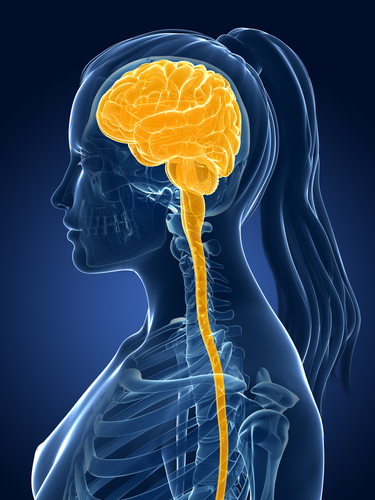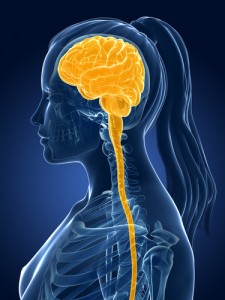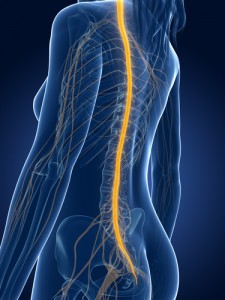Future MS Therapies Could Target, Treat Intestinal Barrier
Written by |

 A new study, entitled, “Intestinal barrier dysfunction develops at the onset of experimental autoimmune encephalomyelitis, and can be induced by adoptive transfer of auto-reactive T cells” conducted at University of Lund, Sweden, published on PlosOne by the research group of Dr. Shahram Lavasani in collaboration with Professor Björn Weström’s own research team, show new research findings on the impact of the intestinal barrier in the development of autoimmune disease multiple sclerosis (MS).
A new study, entitled, “Intestinal barrier dysfunction develops at the onset of experimental autoimmune encephalomyelitis, and can be induced by adoptive transfer of auto-reactive T cells” conducted at University of Lund, Sweden, published on PlosOne by the research group of Dr. Shahram Lavasani in collaboration with Professor Björn Weström’s own research team, show new research findings on the impact of the intestinal barrier in the development of autoimmune disease multiple sclerosis (MS).
In this study, using the experimental autoimmune encephalomyelitis (EAE) –the animal model of MS — the researchers demonstrate the impact of inflammatory processes and dysfunction of the intestinal barrier in an early stage of MS.
Multiple sclerosis is a chronic, disabling, autoimmune disease of unknown origin. It’s not clear how the disease develops and why the immune system targets the central nervous system (CNS). MS patients can present various symptoms, such as the loss of sensation, motor difficulties, blurred vision, dizziness, and tiredness.
It has been known that various types of autoimmune diseases, such as Crohn’s disease, ulcerative colitis, and type 1 diabetes show an increase of permeability of the intestinal barrier to bacteria and toxic substances, a process named ‘leaky gut syndrome,’ promoting more inflammation. “Our studies indicate a leaky gut and increased inflammation in the intestinal mucous membrane and related lymphoid tissue before clinical symptoms of MS are discernible. It also appears that the inflammation increases as the disease develops,” added Dr. Lavasani, one of the authors of the study.
Taken into account data obtained by these researchers in previous work where it was shown that probiotic bacteria could protect partially against the development of MS, Dr. Shahram Lavasani’s group, in collaboration with Professor Björn Weström, doctoral student Mehrnaz Nouri, and reader Anders Bredberg decided to investigate the involvement of intestinal mucosal barrier and inflammatory processes in the intestine during MS.
[adrotate group=”4″]
 “To our surprise, we saw structural changes in the mucous membrane of the small intestine and an increase in inflammatory T-cells, known as Th1 and Th17,” said the researchers. “At the same time, we saw a reduction in immunosuppressive cells, known as regulatory T-cells. These changes are often linked to inflammatory bowel diseases, and biologically active molecules produced by Th1 and Th17 are believed to be behind this damage to the intestines.”
“To our surprise, we saw structural changes in the mucous membrane of the small intestine and an increase in inflammatory T-cells, known as Th1 and Th17,” said the researchers. “At the same time, we saw a reduction in immunosuppressive cells, known as regulatory T-cells. These changes are often linked to inflammatory bowel diseases, and biologically active molecules produced by Th1 and Th17 are believed to be behind this damage to the intestines.”
The blood-brain barrier (BBB) is critical to regulate the transport of soluble substances and cells from the periphery to the central nervous system (CNS), but this barrier is compromised and dysfunctional in MS due to the occurrence of neuroinflammatory processes. In this study, the investigators observed similar processes in the intestinal barrier as the ones observed in the CNS. In the intestinal barrier, injury is occurring mainly in ‘tight junctions’ that bind the cells together in the mucous membrane of the intestine and that are associated with disease-specific T-cells.
“Our findings provide support for the idea that a damaged intestinal barrier can prevent the body ending an autoimmune reaction in the normal manner, leading to a chronic disease such as MS”, said Dr. Lavasani.
The researchers are currently studying other key inflammatory players in the gut that can contribute to the development of treatments that are able to restore intestinal homeostasis to prevent the development of the disease. Some of this work is part of Mehrnaz Nouri’s doctoral thesis, which will be defended this year.
The researchers believe that future novel therapies for MS should target not only the central nervous system but also the intestine by restoring intestinal barrier function to inhibit disease progression.
“Looking even further to the future, we hope for the development of a better treatment that aims at the intestinal barrier as a new therapeutic target,” the researchers said.


